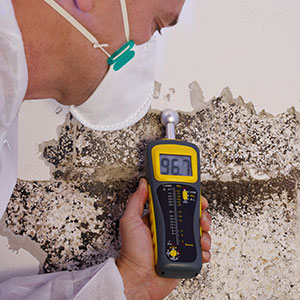When you’ve been exposed to toxic mold in your living space, it can result in serious health complications. At Gertler Law Firm, we’ve helped many of our clients deal with the legal and medical consequences of mold exposure. Here are some of the common inquiries we often receive:
What Are The Common Symptoms Linked To Toxic Mold Exposure In New Orleans Buildings?
Common symptoms of toxic mold exposure can include persistent and unexplained coughing, sneezing, sinus irritation, and light-to-moderate difficulty breathing.
Often, individuals living in environments with toxic mold growth also report chronic fatigue, headaches ranging from mild to intense pain, and sore throats.
In more severe cases, it is possible to experience neurological issues like memory loss, frequent mood changes, and dizziness.
It is important to understand that these symptoms will not go away on their own and will, in fact, worsen over time from prolonged exposure. If you suspect exposure to toxic mold, you need to seek medical attention immediately and look into legal representation.
What Legal Options Do I Have If I Suffered Health Issues Due To Toxic Mold Exposure In A New Orleans Apartment?
In Louisiana, the law enables tenants to hold their landlords accountable if there is a failure to maintain the property in a habitable condition. For a property to be habitable, it must be structurally sound and free of issues that could pose a risk to the inhabitant’s health and/or safety.
If you’ve suffered health issues due to toxic mold exposure in a New Orleans apartment, you may have legal justification to seek compensation for your injuries. Compensation could cover medical bills, loss of income, and potentially pain and suffering.
How Is Landlord Liability Determined In Toxic Mold Injury Cases In Louisiana?
In Louisiana, landlord liability is typically determined by an evaluation of whether or not the landlord failed in their duty to provide a habitable property for their tenant.
If a landlord knew or should have known about conditions that could have contributed to the formation of toxic mold growth, such as inadequate ventilation or leaks, any failure to remedy the situation could result in the landlord being held liable for subsequent health issues.
The court will review any notices from tenants or inspection reports to determine if reasonable action was taken to correct any situations that could lead to a future health issue.
The success of a toxic mold injury case usually hinges on proving the landlord’s knowledge and creating a connection between the mold and your health problems.
What Evidence Do I Need To Support A Toxic Mold Lawsuit In Louisiana?
The best thing you can do to support your toxic mold lawsuit is to have clear and thorough documentation of your health issues. Obtain medical records from your physician and any specialists you may have seen while in recovery.
You’ll need evidence of the mold and any water damage in your home. You can take photographs, video footage, or anything that shows the problem clearly.
An attorney who is experienced in handling toxic mold lawsuit cases will be able to point you in the right direction and also do their part to help you gather evidence.
Call to Action (CTA):
Toxic mold exposure can result in long-lasting consequences for your health. If you’ve been exposed, you deserve compensation for your future medical bills. Let us help you.
To schedule a Free consultation, call us today at (504) – 527 – 8767.
